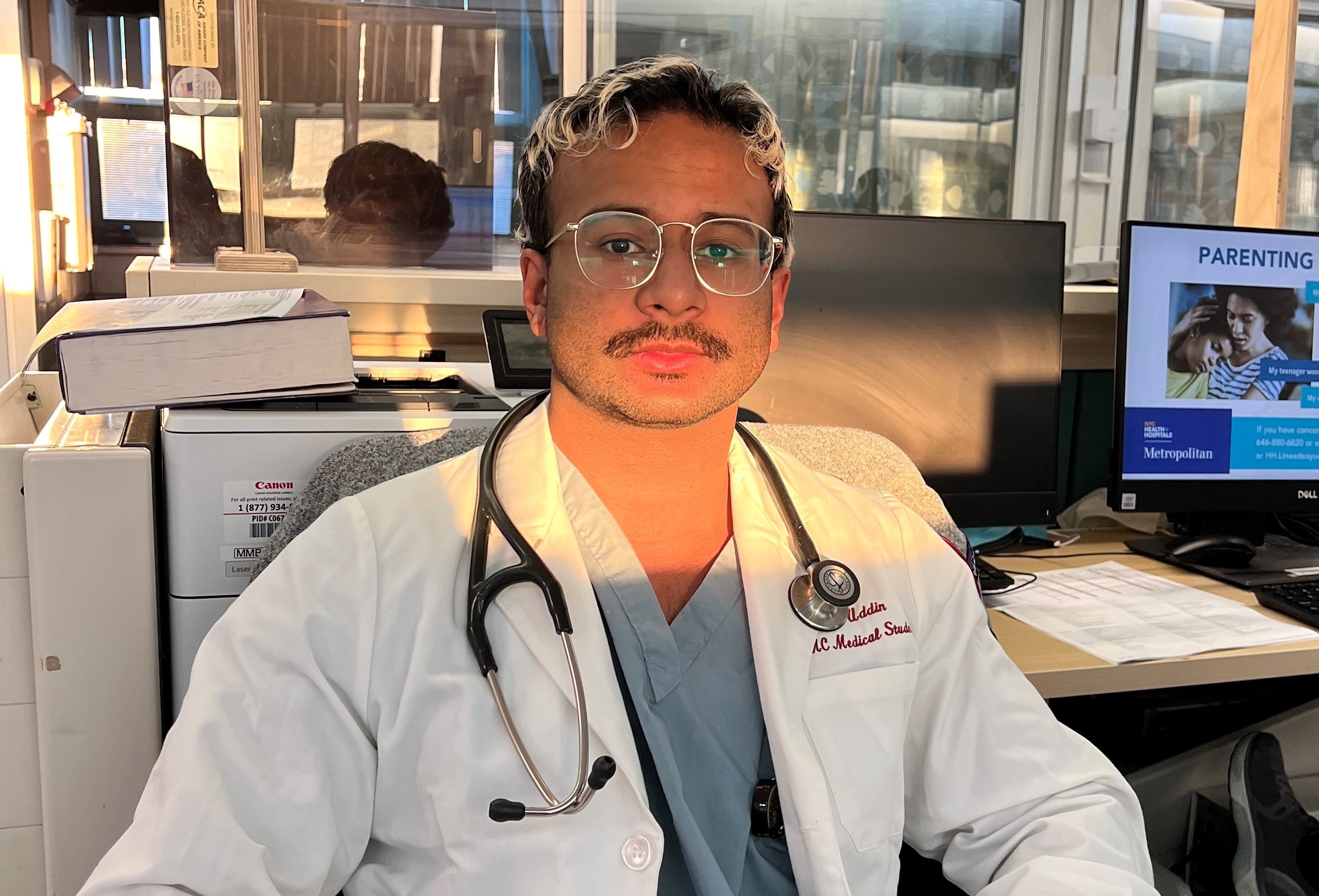Mentorship Propels Medical Student on Successful Research Path
Anaz Uddin Has Participated in 40 Research Projects in the Department of Neurosurgery and Co-authored 12 Publications

As a medical student at New York Medical College (NYMC), Anaz Uddin, SOM Class of 2025, has had the opportunity to participate in approximately 40 research projects in the Department of Neurosurgery on a wide range of topics. With a background in engineering, Uddin has served as the department’s meta-analysis statistics specialist on many of the projects and credits the support of his faculty mentors and investigative collaborators, which include NYMC faculty, students, and alumni, for his prolific research outcomes.
“All of my success in publishing research can be attributed to the support and guidance given to me by my mentors, especially Fawaz Al-Mufti, M.D., professor of neurology, neurosurgery, and of radiology, and the neurosurgery team at Westchester Medical Center [a major clinical affiliate of NYMC],” said Uddin, who is also a second lieutenant in the U.S. Army and enrolled in the Accelerated Interdisciplinary Biomedical Sciences M.S. Program (AMP) at NYMC. “I am extremely grateful to all my co-authors who graciously allowed me to help with their projects and who all worked incredibly hard to publish these papers.”
Students in AMP take select pre-clinical medical school courses alongside first-year NYMC School of Medicine (SOM) students. This advanced exposure gives students who progress into the SOM a higher level of confidence in their first year to devote time to investigating their interests in clinical and research areas. According to Uddin, "The AMP was great in helping me switch careers from engineering to medicine. The program provided me with a solid foundation to excel in M1 and the free time during M1 to spend on research. Also, I didn't fall behind when I had to go to army training in the summer between M1 and M2 while my peers were doing summer research because I had so much research frontloaded during M1."
To date, Uddin has co-authored twelve publications with several more submitted for publication. Two recent publications in Stroke: Vascular and Interventional Neurology and Interventional Neuroradiology focused on acute ischemic stroke. “We looked at the connection between patients with irritable bowel syndrome (IBD) and acute ischemic stroke (AIS) and found that patients with IBD are at risk for AIS at an earlier age and are more likely to have complications,” said Uddin. “In another study, we investigated treatments and outcomes of AIS patients with psychiatric conditions, who are less likely to be treated with mechanical thrombectomy even when controlling for all baseline risk factors. Our study suggested the need for further investigation into the reasons for the disparities in treatment being offered.”
“It is especially rewarding to help on these projects because physicians actually listen to what we have to say in our original research and consider our findings before treating patients,” said Uddin. “Sometimes our research actually changes how doctors practice medicine, which is nothing short of amazing and fulfilling for me.”
For students looking to get experience in research, Uddin offers several bits of advice, including seeking out a department that produces a lot of meaningful research; offering help with statistics, data entry, and manuscript writing; being a good teammate; following up on your projects and seeing them to completion; and “networking, networking, networking.”
“I started by cold emailing all the doctors in the department and I was persistent,” said Uddin. “It took more than one email before I got a response, but it was the best decision I have ever made in medical school.”
